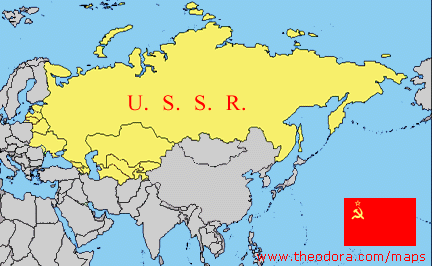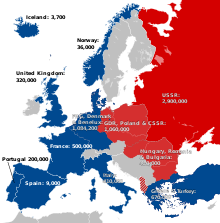




Berlin
Conference of 1884
- The Berlin Conference of 1884–85 was a meeting between European
nations to create rules on how to peacefully divide Africa among them for
colonization.
- The conference was convened by Portugal but led by Otto von
Bismarck, chancellor of the newly united Germany.
- Though invited, the U.S. declined to participate.
- The resulting agreement, the General Act of the 1885 Conference of
Berlin, banned the slave trade in name (though not in reality, especially
in the Belgian-controlled Congo Free State) but otherwise encouraged
European nations to aggressively colonize and exploit Africa's human and
natural resources or to lose their claims under the Principle of Effectivity,
which allowed signatories of the agreement to jump each other's claims if
the claims were not being fully exploited.
Capitalism
- Capitalism is an economic system that developed during the European
industrial transformation that began in the late 18th century.
- Capitalism is based on beliefs in progress, respect for individual
choices, and property rights, including the right to buy and sell
freely.
- It seeks to create wealth by controlling and improving the means of
economic production, such as land, factories, and machinery.
- Unlike those in a feudal system, laborers in a capitalist system
are free to make their own decisions about where and whether to
work.
- Capitalism differs from mercantilism in that mercantilism seeks to
control the means of trade, especially long-term trade, and to increase
national wealth by creating trade imbalances with other countries, whereas
capitalism seeks to increase wealth through increasing efficiency in
production.
Detente
- Détente, French for "thaw," refers to the lessening of
tensions between NATO and the Warsaw Pact in the decade following the
Cuban Missile Crisis. (The term also refers to better relationships
between the U.S. and China over the same period.)
- Détente saw public progress toward nuclear arms control (SALT I
treaty) and increased cooperation in trade and space exploration, but
relationships remained strained over human rights and proxy wars, such as
Vietnam, fought between the capitalist democracies and the communist
bloc.
- Rising tensions between the USSR and China, including a 1969 border
conflict, prompted both communist countries to improve relations with the
West.
- Détente largely ended with the 1979 Soviet invasion of Afghanistan,
an event that contributed to the USSR's 1991 collapse.
European
Union
- The European Union is a transnational
federation that has largely removed barriers to movement by people and
goods, mostly shares a common currency, and coordinates defense and
diplomatic policies.
- It began as a six-nation coal and steel
community in 1952, but grew in size and scope, due largely to the
post-World War II view that European integration was essential for
avoiding World War III.
- Its governing Charter
of Fundamental Rights of the European Union became compulsory
for member states under the 2009 Treaty of Lisbon.
- Its bureaucratic and political structures
are based in Brussels.
- Current controversies include refusal to
admit Turkey (Europe's largest Muslim country) into the union, leading to
assertions that the union merely reinforces the pan-European Christian
identity dating from the Roman Empire.
French
Revolution
- The French Revolution (1789–1799)
established the first modern European republic and signaled the death of
feudalism.
- Feudal excesses, wars and fiscal
mismanagement contributed to the revolution, whose flashpoint occurred
when King Louis XVI convened an assembly, the "Estates-General,"
representing the three pillars of feudal society — nobles, clergy, and
commoners — to revise taxes.
- The commoners present asserted the right
to enact a new constitution, triggering national revolt.
- In subsequent years, the royal family was
executed and the ideals of "liberty, egality and fraternity"
suffered as various councils attempted to govern France while warring
against neighboring monarchies and the republic descended into a
"Reign of Terror" involving mass beheadings of suspected
counter-revolutionaries.
- Napoleon Bonaparte ended the revolution in
1799 by seizing powers similar to the king's.
Humanism
- Humanism was a Renaissance artistic,
literary, and political movement that sought to reorder society along the
artistic and moral examples of the pre-Christian Classical World.
- The movement was especially invigorated by
the ancients' previous accomplishments in aesthetics, ethics, and applied
reason.
- The modern study of "the
humanities" derives from this term and period.
- The humanists, including pioneers like
Dante and Petrarch, emphasized the ancient Greek values of individualism
and human excellence (virtue) over the divine and helped to reintegrate
Classical thought, especially neo-Platonic thought, into the Western
tradition.
- Humanists were avid collectors and
translators of ancient Greek and Roman texts, many of which had been
largely unknown prior to the revival but which became widely disseminated
through the aid of the printing press.
Imperialism
- Imperialism is the political, economic,
military, or other domination of one country or culture by another.
- Imperialism has existed throughout
recorded human history and typically involves economic transfer of wealth
from the dominated country to the dominator, either in the form of tribute
or favorable terms for the transfer of natural resources, use of territory
(such as ports), taxes, and other means.
- The term is especially applied to the
European domination of Africa following the Berlin Conference of 1885, and
was an outgrowth of earlier policies of mercantilism and
colonialism.
- During the period of European imperialism,
practitioners of it sought to justify their behavior through theories like
Social Darwinism and beliefs in a civilizing mission, dubbed the
"White Man's Burden," behind European global dominance.
Laissez-faire
Capitalism
- Laissez-faire capitalism is a belief that
unregulated capitalism will create the greatest benefit for all.
- Proponents of such a system believe that
government interference, including tariffs or social safety nets,
ultimately causes more harm than good by promoting or protecting
inefficiency.
- In extreme forms, the philosophy has been
used as a reason not to intervene in humanitarian crises, such as the
Irish famines (1846–49), despite evidence that many "natural"
catastrophes are the result of government actions or lop-sided
concentrations of wealth and resources.
- Adam Smith's belief in the "invisible
hand" that balances economic systems is sometimes cited as
evidence of his support for laissez-faire policies, though his call for
government to intervene to prevent monopolies shows he was not an
absolutist.
Nation-State
- A nation-state is a political entity with
sovereignty over a defined territory often coinciding with the
distribution of a unified ethnic identity.
- The nation-state in Europe replaced the
religious and imperial basis for political legitimacy following the
Reformation.
- The Peace of Westphalia solidified the
concept of nation-states and national sovereignty by constraining the
rights of outsiders to intervene in the internal affairs of others on
religious or other pretexts.
- National sovereignty became a key concept
in social contract theory.
- The related concept of self-determination
of peoples has been used to justify formation of nation-states mirroring
ethnic distributions, but completely homogenous countries rarely, if ever,
exist.
- Unified identities have created nation-states,
as in England, but have also developed in response to nation-state
creation, as in France.
Papacy
- The term papacy refers both to the pope's
position as leader of the Catholic Church and to the larger bureaucratic
structure of that church.
- Today the papacy is headquartered in the
independent country of the Vatican, surrounded by the city of Rome.
- This location reflects the historical
primacy of the bishop of Rome over other bishops due to the church's
status as the state religion more or less since the reign of
Constantine.
- Starting with the coronation of
Charlemagne in 800 AD, the popes established their authority in Europe to
act as God's representatives in supporting — or denying — the Divine Right
of Kings to rule in Europe. Collaboration was thus assured between
Europe's secular and religious leaders until the Reformation created new
political possibilities.
Reformation
- The Protestant Reformation (1517 – 1648)
began with a challenge by German monk Martin Luther to the Catholic Church
with his "95 Theses" to end the practice of selling forgiveness
for sins in exchange for money (a practice known as
"indulgences"), but led to the permanent disruption of the
relationship between the Papacy and the aristocracy as the basis for
political legitimacy and stability in Europe.
- Martin's premise that no church hierarchy
or intercession is required either for prayer or salvation was reinforced
by his translation of the Bible into German, making its text directly
accessible to common people for the first time.
- The current diversity of Christian sects
emerged in the century of warfare and social upheaval that followed.
Scientific
Revolution
- The scientific revolution refers to the
rapid advances in European scientific, mathematical, and political
thought, based on a new philosophy of empiricism and a faith in progress
that defined Europe in the 16th and 17th centuries.
- It grew gradually from expanded global
trade, invention of the printing press, and the Reformation.
- The 1543 publication of Copernicus'
observations that the sun, not the earth, was the center of the solar
system is viewed as the revolution's flash point because his book encompassed
its major trends: challenging Classical writers and religious doctrine
that contradicted direct observation and dissemination of knowledge via
the printing press.
- Contests between Catholic and Protestant
regimes at the time also provided safe havens for those willing to
challenge the doctrines of either side.
The
Holocaust
- The Holocaust (1939–45) was the
mass-murder of six million Jews and additional millions of Gypsies,
homosexuals, mentally disabled, and political opponents by the German
government and military under the Nazis during World War II.
- Two-thirds of the Jews in Europe were
murdered through use of the products of the Industrial Revolution —
notably railroads, large-scale prison camps, and chemistry — and
bureaucratic management that systematically carried out the largest
genocide in history.
- Referred to by Nazis as the "final
solution," the Holocaust was the culmination of anti-Semitic and
extreme nationalist views outlined in Hitler's 1926 biography, Mein Kampf, published prior to the 1932 election that
gave his Nazi party a parliamentary majority.
- Numerous Nazi leaders were tried for
crimes against humanity in the precedent-setting Nuremburg trials.
USSR
- The Union of Soviet Socialist Republics
(USSR) or Soviet Union (1922 – 91) was a one-party, communist state
emphasizing a centrally planned command economy.
- Founded following the overthrow of the
Czar and victory by the Bolsheviks in the ensuing civil war, it was the
first country to transform society along Marxist economic and social
theories.
- Russians formed the country's largest
cultural group.
- Though its early decades were
characterized by oppression, famine, and political mass murder, the USSR
emerged from World War II as one of two world superpowers, a position it
maintained throughout the Cold War by allocating national resources to
military spending, including space exploration, at the expense of consumer
goods and overall economic growth.
- The USSR dissolved in 1991 following a
six-year restructuring effort.
Warsaw
Pact
- The Warsaw Pact (1955 – 91) was a
post-World War II military alliance composed of the USSR and the
Soviet-dominated Eastern European countries, referred to as "Soviet
satellites."
- The pact formerly began in 1955 following
admittance of West Germany into NATO.
- The Warsaw Pact was the principal rival to
NATO during the Cold War, but its weakness was demonstrated by the
invasion of pact members Hungary and Czechoslovakia in 1956 and 1968,
respectively, by other members to prevent anti-communist political
reforms.
- Since the 1991 collapse of the Soviet
Union, a majority of former Warsaw Pact countries have joined NATO as a
means of strengthening ties with Western Europe against continued pressure
from Russia, which largely inherited the Soviet Union's military and arms.
IAS OUR DREAM COMPLETED SEVEN YEARs ON AUGUST 13,2016








